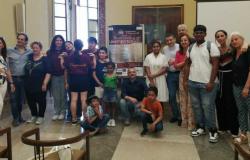Not just European and regional. In fact, over the weekend there will be as many as 799 Piedmontese municipalities called to elect the new mayor. Of these, 204 are in the province of Turin but there is already a first exception: a Cafasse in fact there will be no voting (and a commissioner will be appointed shortly) due to the rejection of all the lists presented due to formal defects.
Voting will take place on Saturday 8 June, from 3pm to 11pm, and on Sunday 9 June, from 7am to 11pm. However, the votes will only take place on Monday afternoon, at the end of those for the European and regional elections. There are eight municipalities with over 15 thousand inhabitants: Chieri, Collegno, Giaveno, Leini, Piossasco, Rivoli, Settimo Torinese and Vinovo.
With what rules will we vote in just over twenty-four hours? The upcoming administrative elections will be characterized by two new features: the mayors of municipalities under 5 thousand inhabitants will be able to run again without any term limit, while in municipalities between 5 and 15 thousand inhabitants the term limit goes from two to three. Despite these “simplifications” in Piedmont there will still be dozens of small municipalities in which only one mayoral candidate will be present at the starting line. In this specific case, the mayor will be elected if he reaches 40% (no longer 50%, as until a few years ago) and at least half of the valid votes on the list.
In the Municipalities under 15 thousand inhabitants, the name of the mayoral candidate is already present on the ballot and, next to it, the mark of the list. The vote is expressed by drawing a mark on the list mark or on the name of the candidate for mayor. It is not possible to vote for a candidate for the office of mayor other than the one linked to the list. The votes obtained by the candidate for the office of mayor are attributed to the list connected to him.
For the Municipalities of less than 5 thousand inhabitants you can express your preference for a candidate for the city council by writing the surname in the appropriate line next to the list symbol. For municipalities between 5 thousand and 15 thousand, one or two preferences can be expressed for the candidates for the municipal council. If there are two, they must concern candidates of different sexes from the same list, under penalty of cancellation of the second preference. The candidate who obtains the highest number of votes is elected mayor.
In the Municipalities over 15 thousand inhabitants there are three voting possibilities: by drawing a mark only on the symbol of a list, thus assigning one’s preference to the marked list and to the mayoral candidate supported by the latter; by tracing a sign on the symbol of a list, at the same time tracing a sign on the name of a mayoral candidate not connected to the voted list (i.e. split voting); by marking only the name of the mayoral candidate, thus voting only for the mayoral candidate and not for the list or lists connected to the latter. The person who obtains at least 50% plus one valid vote is elected mayor. Otherwise, there will be a run-off on Sunday 23 June (from 7am to 11pm) and Monday 24 (from 7am to 3pm) to choose between the two most voted candidates. To the ballot Whoever gets the most votes will be mayor.






